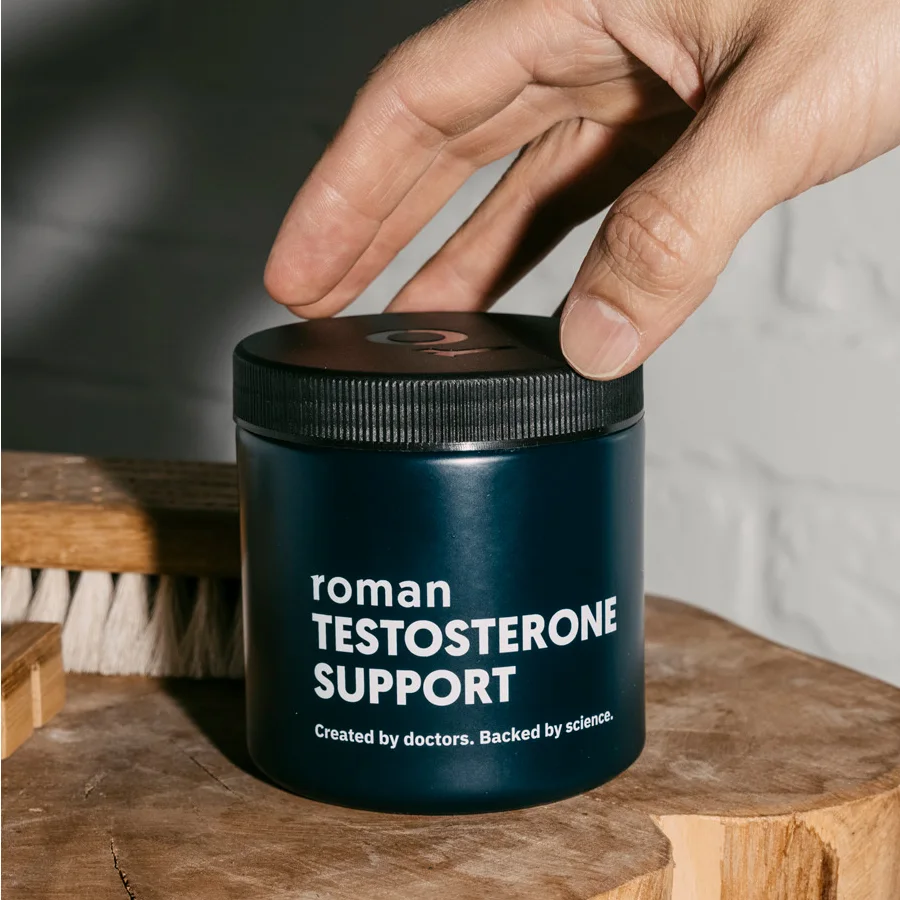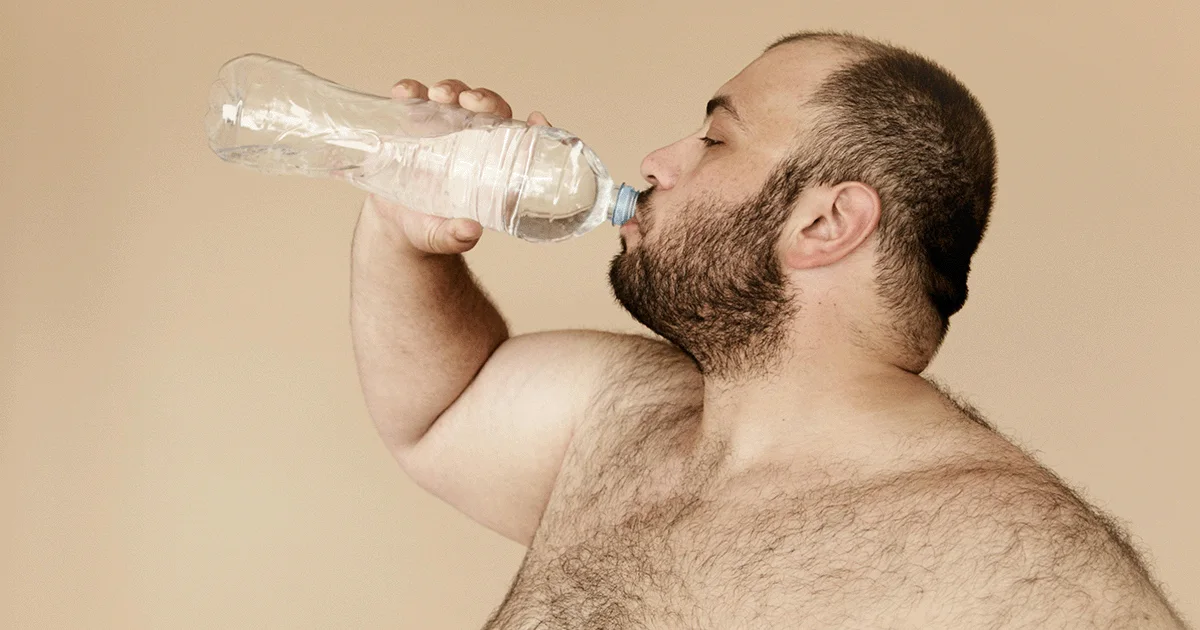Key takeaways
Testosterone may increase during or after sex, but the spike tends to be temporary.
There is not enough research to make a conclusive statement, but existing evidence does not suggest sexual activity can increase testosterone levels in a meaningful, lasting way.
Here's what we'll cover
Here's what we'll cover
Here's what we'll cover
Key takeaways
Testosterone may increase during or after sex, but the spike tends to be temporary.
There is not enough research to make a conclusive statement, but existing evidence does not suggest sexual activity can increase testosterone levels in a meaningful, lasting way.
Testosterone levels play a role in sexual health, so it's normal to wonder if there are steps you can take to maintain or boost your testosterone. For instance, does sex increase testosterone? Could having more sex lead to higher T levels? The short answer is maybe — but if so, it's probably only a temporary boost.
Keep reading to get a closer look at the connection between testosterone and your sex life, including whether having sex increases testosterone and why low T and erectile dysfunction (ED) often go hand-in-hand.
Does sex increase testosterone?
Some (but not all) research suggests that sexual activity can cause a temporary spike in testosterone. As for how long this sex-induced increase in testosterone might last? TBD; existing studies on this topic are not large or placebo-controlled, and researchers have not yet measured the exact length of time. Let's dig into what the science does show:
One study of men ages 65–80 found no relationship between participants' sexual activity and testosterone levels. In other words, in this small study, there was no relationship between how often the men had sex and how high or healthy their T levels were.
A 2010 study of 26 men at a sex club found that participants' salivary testosterone levels increased after having sex or watching others have sex. Researchers noted that the short-term testosterone boost was significantly greater among men who engaged in sexual activity versus merely observing it. Keep in mind the study was small, and results may not necessarily be generalizable.
A 2021 research review also found that some small studies showed men with low T who had been abstaining from sex due to ED were able to "restore" testosterone by having penetrative sex. This refers to a longer-term change.
Bottom line: Having sex seems to cause a short-term testosterone boost in men, but the evidence is minimal. Studies involved small sample sizes across various settings. More research is needed to make conclusive statements about whether having sex increases testosterone levels in all situations or populations, or how common it is for sex to increase testosterone in a meaningful or lasting way.
So far, we've tackled the question, "Does having sex increase testosterone?" But if you're concerned about healthy T levels, it's important to understand the bigger picture: how hormones like testosterone actually work in the body and what role testosterone plays in your sex life.
Hormones 101
At the basic level, hormones are chemical messengers that travel through the blood to various parts of the body. They help regulate everything from appetite and circadian rhythm to stress response and sexual development. For instance, insulin is a hormone produced in the pancreas that helps regulate blood sugar levels. Cortisol, on the other hand, is produced in the adrenal glands and plays a crucial role in regulating the body’s reaction to stress.
So, when we discuss hormone health, we're really talking about overall health. If you're concerned about your hormone levels, it helps to be specific. As a sex hormone, testosterone primarily affects sexual development and sexual health.
Sex hormones and testosterone
Testosterone is a sex hormone and is commonly considered an androgen or “male hormone” (though it’s present in all sexes). Testosterone levels tend to be a common concern for males because they have (and need) more of it. Testosterone and another hormone, DHT, are responsible for the body changes males undergo during puberty, such as pubic hair growth, muscle development, and voice deepening.
For men, testosterone plays a major role in sexual health, including:
Stimulating sex drive (libido)
Producing sperm
Supporting erectile function
It's important to know that most research on testosterone and sex focuses on how healthy testosterone levels impact sexual function, not the other way around (like whether having sex increases testosterone). For instance, we know that low T can contribute to low sex drive, loss of lean muscle mass, and erectile dysfunction. In other words, low T can impede sexual arousal and performance. On the other hand, high testosterone, which is typically caused by anabolic steroid abuse, can also cause sexual problems such as infertility, testicular dysfunction, and gynecomastia (male breast tissue growth).
Erectile dysfunction and testosterone levels: how are they connected?
Low T alone doesn't cause erectile dysfunction, but it can be a major contributing factor. Other health conditions that can cause ED include heart disease, high blood pressure, obesity, and more. So, while boosting testosterone levels might help treat ED, it's also essential to treat the other underlying health conditions that may be making it difficult to get or maintain erections.
Does sex increase testosterone in men with ED?
Maybe. The data is mixed. Limited research suggests that resuming sexual activity helps restore T levels in men who were previously experiencing low T levels while abstaining due to ED symptoms. However, we cannot say for sure that the sexual activity itself is directly related to the improved testosterone levels over time. Men undergoing such a major lifestyle change may have made other shifts in routine that could also contribute to the increased testosterone levels. The short answer: It’s hard to say if sex increases testosterone in men with ED for sure.
Sexual stimuli and testosterone
So, does having sex increase testosterone? It seems that it might have that effect temporarily, but that might lead you to wonder whether other sexual stimuli, such as pornography or masturbation, can also increase testosterone. Unfortunately, there's very little research on the matter.
Does masturbation increase testosterone?
It’s possible that masturbation can lead to an increase in testosterone. The aforementioned 2021 research review found evidence of temporary testosterone spikes from masturbation, observing sexual activity at a sex club, and watching porn. But again, these testosterone increases were not large or long-lasting enough to make a difference in overall sexual health or performance.
Interestingly, there is an entire online community that takes the opposite stance. The NoFap community argues that not masturbating can increase testosterone. Though NoFap is an internet-era phenomenon, semen retention — deliberately avoiding ejaculation in pursuit of purported health benefits — is an old practice. Proponents of NoFap and semen retention often point to a single 2003 study as proof that abstinence increases testosterone. In the study, which only included 28 male participants, researchers identified an increase in testosterone levels after one whole week of sexual abstinence. Since then, this article has been retracted.
Ultimately, due to limited research, we can't make any definitive statement about whether partnered sexual activity, masturbation, or abstinence can affect testosterone levels in a meaningful way.
Other ways to increase testosterone
Not everyone needs to increase their testosterone. Testosterone levels do decrease naturally with age, but the only way to know if you have low testosterone is to get tested. Consult a healthcare provider if you're experiencing low T symptoms like loss of libido, loss of body hair, an increase in body fat, a decrease in muscle mass, and moodiness.
If you are concerned about T levels, there are steps you can take to support testosterone production naturally. These include lifestyle changes such as exercising regularly, getting better sleep, reducing stress, and eating a healthy diet.
Some men with diagnosed low T (hypogonadism) may be prescribed testosterone replacement therapy (TRT), which is available in patches, gels, and oral medications. It's important to understand that TRT is not recommended for everyone. If you have low T, consult your healthcare professional about the risks versus benefits of prescription TRT.
Bottom line
Does sex increase testosterone? Not really. While sexual activity may have a short-term effect on testosterone, it does not seem to impact your long-term baseline levels.
Here's a recap on the relationship between sex and testosterone:
Testosterone is a key sex hormone that regulates sex drive, erectile function, and more.
Though healthy testosterone levels support sexual function, it's not a two-way street. There's little evidence that having more sex increases testosterone in a significant or sustained way.
Limited research suggests that engaging in sexual activity can cause a temporary increase in testosterone.
Lifestyle factors, such as regular exercise, a healthy diet, and effective stress management, can help support testosterone levels as you age.
If you suspect you have low T, having sex is unlikely to help. Instead, consult a healthcare provider who can check your levels and recommend the best treatment for you.
Frequently asked questions (FAQs)
How much sex increases testosterone?
There is not enough research to make a conclusive statement about how much sex can increase testosterone. A few small studies have found that having sex or observing sex can cause a spike in testosterone to varying degrees; this effect appears to be limited to the short term.
Is having sex every day good for testosterone?
While research on this topic is limited, how often you have sex is your prerogative and is unlikely to affect your baseline testosterone levels in a meaningful, long-term way.
Is your testosterone higher after sex?
One small study found that men's salivary testosterone levels were temporarily higher after having sex compared to those observing it. That said, sex does not seem to result in significant or long-lasting changes in testosterone levels.
DISCLAIMER
If you have any medical questions or concerns, please talk to your healthcare provider. The articles on Health Guide are underpinned by peer-reviewed research and information drawn from medical societies and governmental agencies. However, they are not a substitute for professional medical advice, diagnosis, or treatment.
References
Blute, M., Hakimian, P., Kashanian, J., et al. (2009). Erectile dysfunction and testosterone deficiency. Frontiers of Hormone Research, 37, 108–122. doi: 10.1159/000176048. Retrieved from https://pubmed.ncbi.nlm.nih.gov/19011292/
Campbell, M. & Jialal, I. (2022). Physiology, endocrine hormones. StatPearls. Retrieved on Jul. 7, 2025 from https://www.ncbi.nlm.nih.gov/books/NBK538498/
Escasa, M. J., Casey, J. F. & Gray, P. B. (2011). Salivary Testosterone Levels in Men at a U.S. Sex Club. Archives of Sex Behavior, 40, 921–926 (2011). doi: 10.1007/s10508-010-9711-3. Retrieved from https://link.springer.com/article/10.1007/s10508-010-9711-3
Jiang, M., Xin, J., Zou, Q., & Shen, J. W. (2003). A research on the relationship between ejaculation and serum testosterone level in men. Journal of Zhejiang University. Science, 4(2), 236–240. https://doi.org/10.1631/jzus.2003.0236 (Retraction published J. Zhejiang Univ. Sci. A. 2021. doi: 10.1631/jzus.2003.r236). Retrieved from https://pubmed.ncbi.nlm.nih.gov/12659241/
Leslie S. W., Rahman, S., & Ganesan, K.. (2025). Anabolic steroids. StatPearls. Retrieved on Jul. 7, 2025 from https://www.ncbi.nlm.nih.gov/books/NBK482418/
Mascherek, A., Reidick, M. C., Gallinat, J., et al.(2021). Is Ejaculation Frequency in Men Related to General and Mental Health? Looking Back and Looking Forward. Frontiers in Psychology, 12, 693121. doi: 10.3389/fpsyg.2021.693121. Retrieved from https://pmc.ncbi.nlm.nih.gov/articles/PMC8382266
Miah, S., Tharakan, T., Gallagher, K. A., et al. (2019). The effects of testosterone replacement therapy on the prostate: a clinical perspective. F1000 Research, 8, F1000 Faculty Rev-217. doi: 10.12688/f1000research.16497.1. Retrieved on https://www.ncbi.nlm.nih.gov/pmc/articles/PMC6392157/
Nassar, G. & Leslie, S. W. (2023). Physiology, testosterone. StatPearls. Retrieved on Jul. 7, 2025 from https://www.ncbi.nlm.nih.gov/books/NBK526128/
Qin, Z., Tian, B., Wang, X., et al. (2012). Impact of frequency of intercourse on erectile dysfunction: a cross-sectional study in Wuhan, China. Journal of Huazhong University of Science and Technology, 32(3), 396–399. doi: 10.1007/s11596-012-0068-9. Retrieved from https://pubmed.ncbi.nlm.nih.gov/22684564/
Rivas, A. M., Mulkey, Z., Lado-Abeal, J., et al.(2014). Diagnosing and managing low serum testosterone. Proceedings (Baylor University. Medical Center), 27(4), 321–324. doi: 10.1080/08998280.2014.11929145. Retrieved from https://pmc.ncbi.nlm.nih.gov/articles/PMC4255853/
Sadowsky, M., Antonovsky, H., Sobel, R., et al. (1993). Sexual activity and sex hormone levels in aging men. International Psychogeriatrics, 5(2), 181–186. doi: 10.1017/s1041610293001516. Retrieved from https://pubmed.ncbi.nlm.nih.gov/8292771/
Thau, L., Gandhi, J. & Sharma, S. (2023). Physiology, cortisol. StatPearls. Retrieved on Jul. 9, 2025 from https://www.ncbi.nlm.nih.gov/books/NBK538239/
Vaamonde, D., Da Silva-Grigoletto, M. E., García-Manso, J. M., et al. (2012). Physically active men show better semen parameters and hormone values than sedentary men. European Journal of Applied Physiology, 112(9), 3267–3273. doi: 10.1007/s00421-011-2304-6. Retrieved from https://pubmed.ncbi.nlm.nih.gov/22234399/













